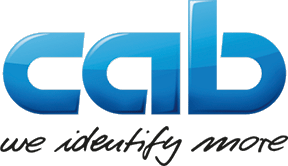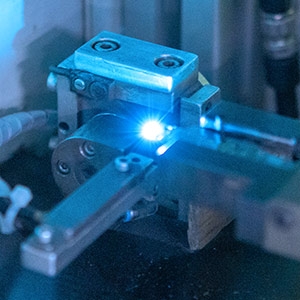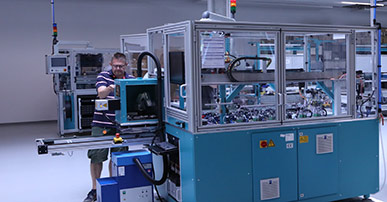Dongles, unique by laser marking
WIBU-SYSTEMS AG protects software and machines
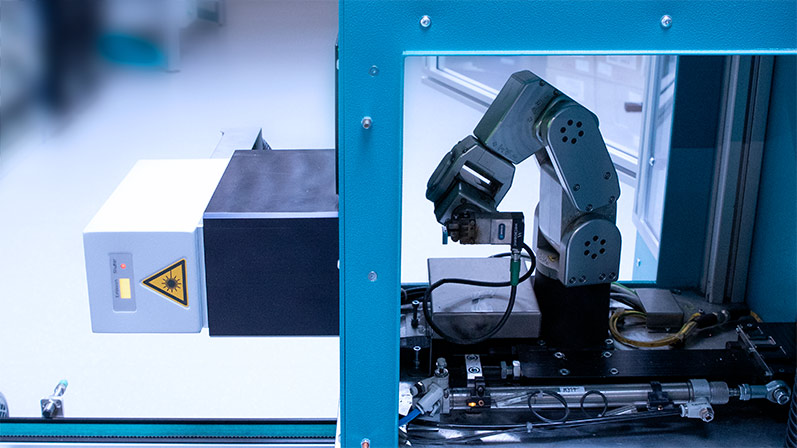
WIBU-SYSTEMS AG since 1989 is known for reliable licensing and know-how protection in software and machines. The cryptography is programmed and provided to WIBU-SYSTEMS AG customers worldwide primarily on dongles. These plugs are visually similar to USB sticks. They are marked by XENO 4 laser systems with unique codes and data. By these, they remain identifiable at all times. The engraving of the dongles is done with the help of robots in fully automated plants.

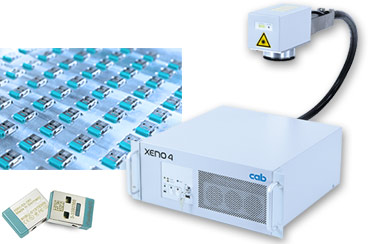
The product
Machines are increasingly manufacturing individual parts these days. Manufacture and devices contain more and more know-how. Such data falling into the hands of unauthorized persons may result, amongst others, in replication. So data must be protected and tracked, use be controlled. WIBU-SYSTEMS AG calls its technology CodeMeter. Software providers benefit, so do machine and plant manufacturers.
CodeMeter runs platform-independent. It can be used locally on a dongle or as a protective key in a network.  The entire license and all secret keys are stored on the chip of a dongle. WIBU-SYSTEMS AG preferably provides USB plugs, compact or in metal or synthetic cases, capped or not capped, in standard or custom design.
The entire license and all secret keys are stored on the chip of a dongle. WIBU-SYSTEMS AG preferably provides USB plugs, compact or in metal or synthetic cases, capped or not capped, in standard or custom design.
The request
Martin Dralle provides a clear definition of what hardware must be able to do in WIBU-SYSTEMS AG manufacture facilities: “We purchase systems and plants. We specify hereto the interface, the protective circuit, the voltage and so on. Everything else is in the hands of our partners. They provide equipment accordingly.” Mr. Dralle is a mechanical engineer. Twelve years ago, he started converting what had been purely manual dongle manufacture and marking into fully automated production systems. Today, only the custom-designed dongles are prepared by hand at the headquarters in Karlsruhe. Picking up the dongles automatically from pallets, programming, marking, testing and depositing are all exerted entirely mechanically with the help of robots amid protective glass.
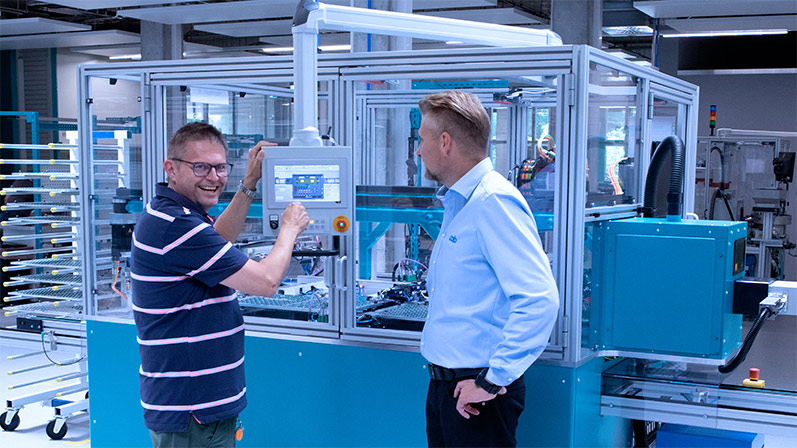
- Martin Dralle is enthusiastic about the plants running perfectly. Pictured on the right is Rüdiger Emrich, cab Sales Manager West for laser marking systems
“With regard to cab lasers,” says Mr. Dralle, “the basic request was to apply an engraving to the metal or synthetic parts. These have a basic standard design. Graphics, texts, parameters and data are to be applied specific to customers.” Manuela Burkert is responsible for purchasing, production and logistics at the company. “Each connector has its own serial number,” she adds. “We mark these by means of a DataMatrix code. By this, we can track each part, representing traceability. This is very important for our customers.”
The application
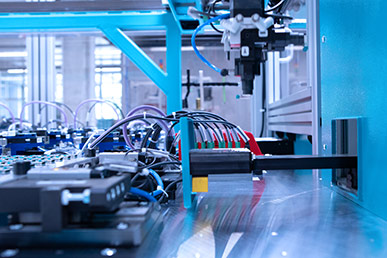
In the first step, dongles are automatically fed on pallets to the manufacture line. They are then picked up by a robotic gripper, aligned and set onto a programming station. A second gripper picks up an already programmed plug and transfers it to the next workstation, the marking laser. The shaft of the laser station opens. The robot with its vacant gripper removes the plug that has already been engraved by laser and with its second gripper puts into place the one that still needs to be marked.
The entire marking, from opening the shaft to engraving and reopening the station, takes just twelve seconds. The dongles can be marked on a maximum of three sides. The manufacture process is completed by the robot returning the marked dongles to their initial spots on a pallet. No dongle leaves the manufacture without testing. Only products of perfect quality are set back onto the pallets. About one million dongles per year are manufactured by WIBU-SYSTEMS AG in this way.
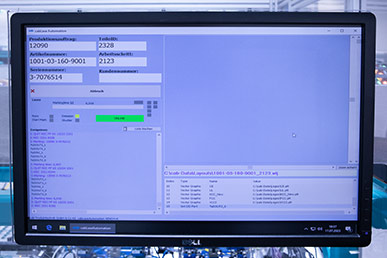
- User interface of the cabLase software
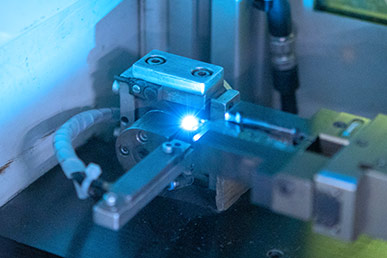
- The beam sources of a XENO 4 laser provide either 20, 30 or 50 Watt output power.
The laser
XENO 4 fiber lasers by cab are particularly economical if top markings are required in conjunction with high performance and long life cycles of the marking system. In these, the core of a glass fiber forms the laser-active medium. Optimally matched to the application, they operate highly efficient and require less energy than, for example, a CO2 laser.
XENO 4 consists of a control unit with a beam source and a scan head linked to the beam source. The system is provided with cablase software ex factory. To bundle the laser beam, the scan head is equipped with a planospherical lens. By this, a specified marking field can be covered. All markings, such as part IDs, article numbers, serial numbers and customer numbers, manufacture orders or processing steps, resist to smear, acids or alkalis, solvents, heat or cold, and wear.
The result
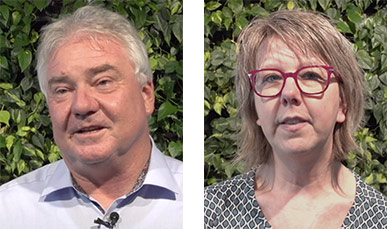
- Oliver Winzenried and Manuela Burkert
Oliver Winzenried is the founder of WIBU-SYSTEMS AG. He is deeply rooted in the city of Karlsruhe. Here he studied electrical engineering and founded his company. He states he has been knowing cab for ages: “Even during our studies, we had bought plug pins from cab for handicraft work. Later, cab became our customer, protecting cab‘s own software with our technology. And in the meantime, we also use cab laser marking systems on our manual work stations and automated testing machines.”
Mrs. Burkert highlights the importance of geographical neighborhood: “We are super satisfied as our way to cab within Karlsruhe is short. When we need them, they are ready instantly. The laser is fixed within a day if there has been a problem. I have nothing to complain about. It is a great collaboration.” Mr. Dralle agrees: “We have made very good experiences, both with cab handling our standard concept, but also customer-specific adaptations. cab processes are technically sound and high-quality.”
WIBU-SYSTEMS AG in brief
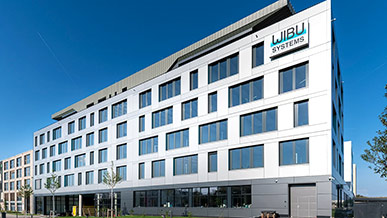
The name of the company is derived from the initials of the founders Oliver Winzenried and Marcellus Buchheit. Karlsruhe is the headquarters. The company also locates in further countries in Europe, Great Britain, the USA and Asia.
In 2021, next to new corporate premises, the so-called House of IT Security was built on the corporate campus as a focal point for startups.
Protection, Licensing and Security are the main businesses. Protection means manufacturers of software and smart devices be preserved from reverse engineering. By licensing, such manufacturers can define which functions the users can use and how to pay for them. WIBU-SYSTEMS AG provides components on the parts of devices and business processes. Security means protection from manipulation. As can be seen with the Cyber Resilience Act and its regulations, this aspect will continue to become more and more important.
Video of this operation
Dongles, unique by laser marking: WIBU-SYSTEMS AG protects software and machines
August 2023
